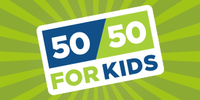Overshadowing the session is the ongoing job action by the Saskatchewan Teachers’ Federation (STF) as collective bargaining negotiations have stalled between the teachers’ union and the provincial government.
Thousands of educators came to the Legislative Building to demonstrate as the session got underway.
During Question Period, NDP Opposition Leader Carla Beck questioned the premier on when the government will come back to the table to negotiate in good faith.
“They’re not here because they want platitudes or good words, Mr. Speaker. They’re here because they want a deal, and they need this government to get back to the table and negotiate a deal that deals with class size and complexity. I’ll say this and I’ll say this clearly, if the government is not interested in doing that, then I’ll tell you an NDP government will,” said Beck.
Premier Scott Moe said the government wants teachers and students back in the classrooms. However, he said the STF has only come to the negotiation table for only 30 minutes in the past five months.
He said the quickest way to get teachers back in classrooms is for the STF to return to the table.
“The fact of the matter is, it is a goal and it is the intent of this government to ensure that our students and our teachers remain in the classroom, Mr. Speaker. We would ask that the teachers’ union return to the bargaining table. That is the way for them to ensure that we are continuing to have our teachers in the classroom,” Moe said.
At the heart of the negotiations is the issue of class size and complexity. Moe said the government has provided $53.5 million to address class size and complexity since the last budget with more announcements coming in the next couple of days.
The government’s stance has been that class size and complexity should be handled by local school boards and not the provincial government.
Education Minister Jeremy Cockrill said the provincial government has invested $300 million for classroom supports and reiterated that they will not negotiate class size and complexity with the teachers’ union.
“We’re not going to be negotiating class size and complexity in a provincially bargained agreement or here on the floor of the House Mr. Speaker. We’re not going to take the responsibility of locally-elected school boards and hand that over to a provincial union. That’s not something that this government is prepared to do on the floor,” Cockrill said.
NDP Education Critic Matt Love shot back saying the government wants to give the school boards autonomy when it comes to class size and complexity, yet the government has stripped away much of the local school boards’ powers.
“After 10 years of underfunding from this tired and out-of-touch government, the only autonomy that local boards have left is the autonomy to make cuts every time they get an insufficient budget from this premier,” Love said.
Job action continues with teachers withdrawing from extracurricular activities at all schools in the province on Tuesday and Wednesday with noon-hour supervision being withdrawn at several school divisions in a rotating strike.














